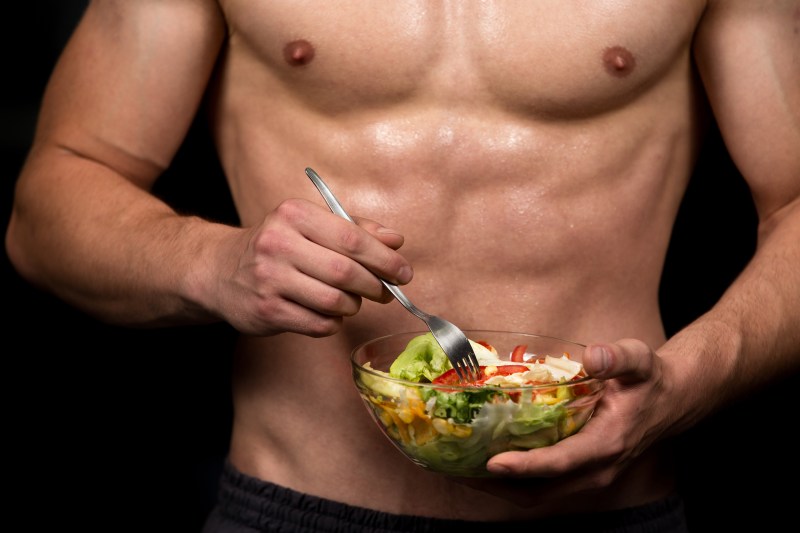
Mindful eating comes from the comprehensive ideology behind mindfulness. This popular, well-known philosophy is celebrated throughout many different cultures and religions. Adherents intentionally focus their mind, physical sensibilities, and emotions on what is happening right now.
This awareness of the present moment allows people to recognize what they’re experiencing instead of always reacting to it. Mindful eating springs forth from that and requires you to focus on what you’re eating to fully experience and understand it.
Eating mindfully encourages you to make satisfying and nourishing food choices to live a healthier life. Then you see that eating is connected to everything you do.

What is mindful eating?
Mindful eaters focus on their eating experiences and how such experiences affect their physical sensations, thoughts, and feelings. They do this without judgment to increase their awareness. They pay attention to the foods they choose, physical cues, both internal and external, and how they respond to those cues.
When you eat mindfully, typically, you want to enjoy and more fully understand both the food and the eating environment. This naturally means you’ll be contemplating what you eat, why you make certain food choices, the amount of food you eat, and how you feed yourself.

What are the benefits of mindful eating?
You’ll benefit from mindful eating in a variety of ways.
Increased awareness
Reducing distractions around the act of eating means you’ll more fully understand the answers to questions like, “How do I know I’m hungry?” or “How does my body let me know I’m full?” Hunger may present like you’re irritated, “hangry” or tired. A rumbling stomach may lead to feelings of weakness or shaky instability. When you’re satiated and starting to feel full, you may experience discomfort or bloating. Getting to know yourself means you’ll be less likely to judge these moods. You’ll understand them. As a result, you’ll enjoy food more and eat without going overboard.
Weight loss
Mindful eating reduces the risk that you’ll eat when you’re full or mindlessly eat when you’re bored. It also leads people to rethink how they choose the food they eat in the first place. This awareness may lead to a healthier lifestyle and assist you in losing or regulating body weight.
Reduces stress
Mindful meditations, mindful eating, and mindful exercise all reduce cortisol levels. This stress hormone, when triggered, leads you into “flight-or-fight” mode. When cortisol is reduced, you naturally calm down, feel less reactionary, and view experiences with more nuance.
Healthier digestion
When your stress levels are reduced, your body can more easily digest food. When you combine reduced stress with slower eating, it may decrease the symptoms of certain digestion issues like irritable bowel syndrome. Mindful eating gives people the tools they need to check in with themselves. They get into the habit of pausing during meals to break unhealthy patterns like binge eating or emotional eating that take a toll on the digestive system.
More enjoyment
Tune into what you’re eating, and you will notice aromas, flavors, sensations, and textures in food. You’ll notice how your body and all associated senses respond to the simple pleasures of eating. Over time, you’ll more fully smell, taste, and enjoy the food you’re eating.
Better food choices
When you recognize the connection between food and how you feel, you may make better food choices. Mindful eating can increase self-awareness and self-love, which also increases healthy heating. You’re more likely to want to feel better after meals rather than stuffed and sluggish.

How to practice mindful eating
Eat until you’re 80% full
Stop eating when you stop feeling hungry. This is at the heart of mindful eating. Do you feel content with some room left over? That signals that you’re about 80% full and still feeling good. This is when you put down your fork, take a few sips of water, and just sit. It takes some work to do this, especially in a society that stresses “more” over “enough.” But soon, you’ll leave meals content and feeling good. Then you know it’s a winning change you’ve made.
Avoid eating in the car
Eating in the car is unsafe and unhealthy. If you’re interested in mindful eating, it means eliminating distractions. You can’t fully focus on your meal while driving a car. The practice of thoroughly smelling and tasting your food while listening to your body’s hunger and fullness cues requires your full attention. You’re less likely to compulsively eat, overeat, and get into accidents if you make time for meals outside the automobile.
Try not to snack while watching TV
When you’re eating in front of a screen, you’re paying more attention to what you’re looking at instead of what you’re putting into your body. Turn off your TV, computer, or smartphone to fully taste and experience your meals. You’ll find food is more satisfying, and you’re less likely to finish the meal feeling full.
Use smaller plates
Many people base their portion size on the size of their plates, cups, and bowls. We naturally just want to fill every space in whatever we choose. Knowing this is helpful makes us choose smaller plates and reduce the risk of overeating. Many of us were also raised to “clean our plates.” We don’t need to judge ourselves or our parents for this. The awareness simply allows us to make different choices, and perhaps leaving our larger dinnerware alone helps us better achieve our nutrition goals.
Take time to chew your food
Help your digestive system do its job. Fully chew your food so that it’s easier to swallow and once it arrives in your stomach, it’s easier to digest. This reduces the risk of choking, indigestion, GIRD, and other forms of heartburn. This makes the eating process more enjoyable. It also makes the time afterward, when your food is digesting, so much more comfortable.

How mindful eating affects fitness goals
Mindful eating goes hand-in-hand with mindful exercising. In general, mindfulness creates a mind-body connection rooted in harmony. When you approach eating and exercise with this kind of awareness, you’ll better understand what your body needs and how to get there.
Nonjudgmental positive regard helps you exercise in a way that serves your body’s needs and helps prevent injuries while promoting a sense of overall well-being. You’ll start to notice all the ways that mindfulness creates a more satisfied eating experience, a more productive workout routine, and a healthier lifestyle.



